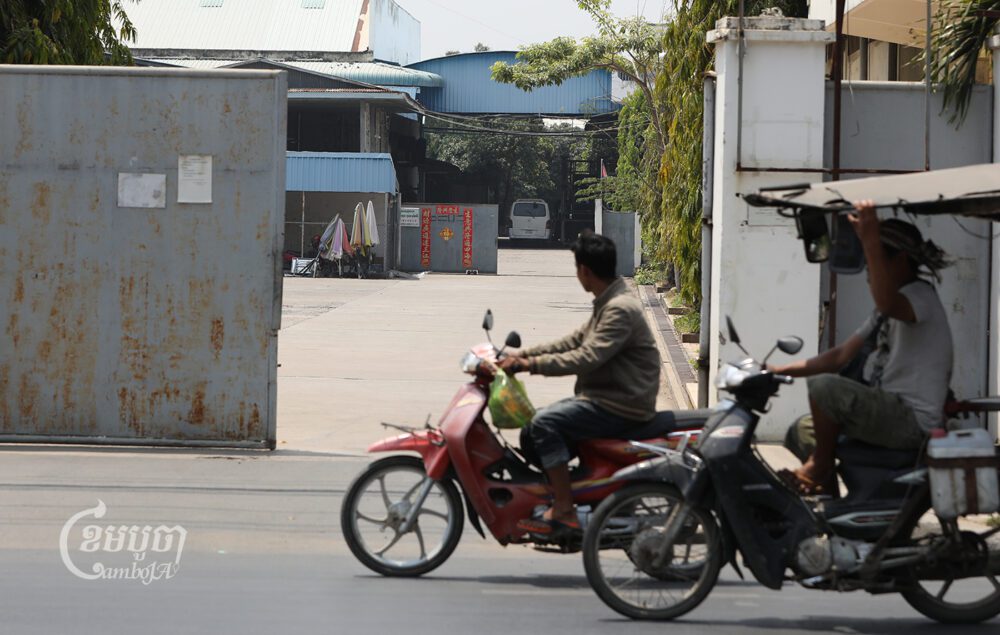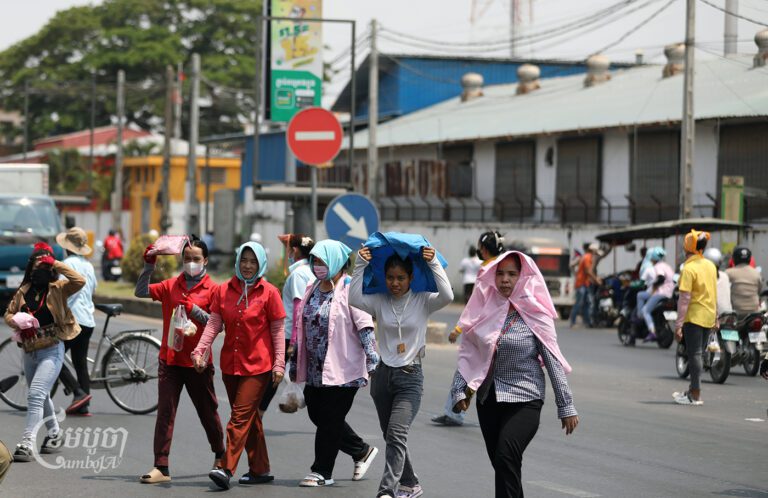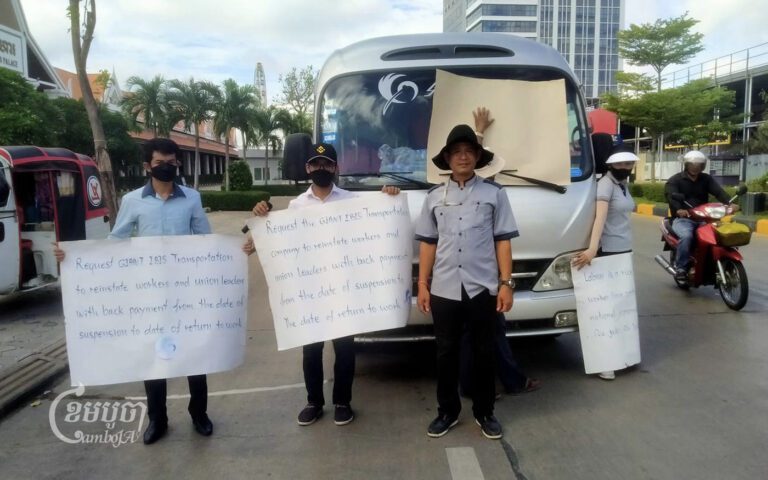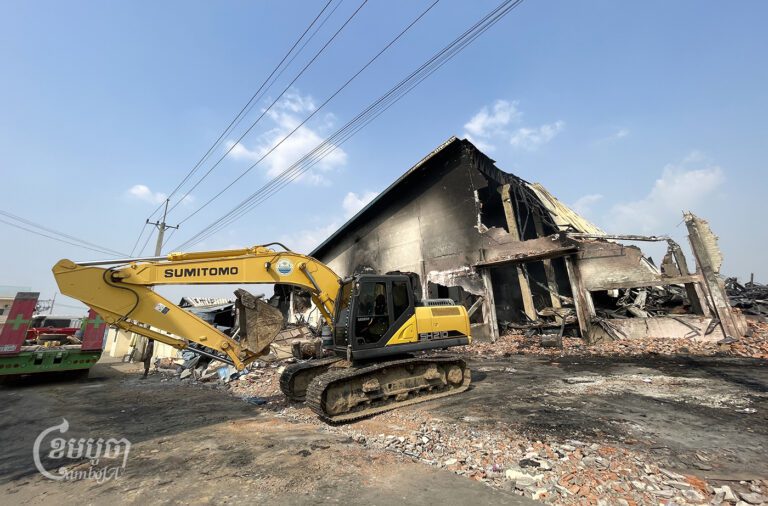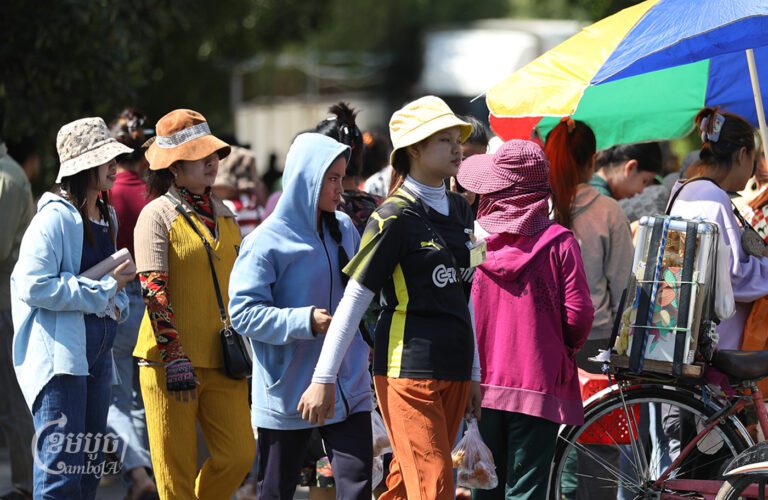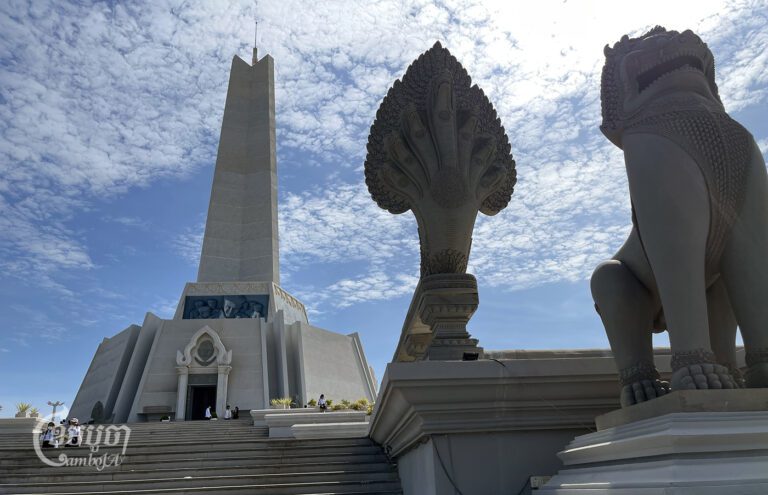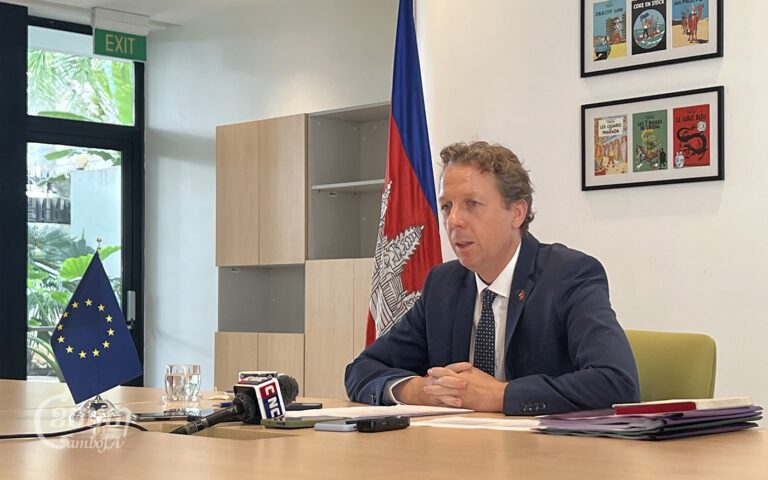Since November, factory worker Ouk Tharith, 40, has been relying on $30 a month from Great Union (Cambodia) Garment Co., Ltd in Phnom. Lacking sufficient orders, the factory has suspended operations three times in recent months, impacting some 1,072 workers. Tharith has taken a job as a cleaner — work that pays just $170 a month compared with the $300 she earned as a garment worker.
“I am still waiting to return to work and everyone wants to return,” she said. “I am also waiting to see whether I will be able to continue or to be completely laid off.”
A slowing global economy due to inflation, lowered investment, and the war in Ukraine has led to a reduction of garment orders in Cambodia and an increase in factories halting operations. By the end of February, some 71 factories had suspended operations affecting 32,023 workers, according to Labor Ministry spokesman Heng Sour.
The suspensions have left workers like Tharith in limbo; while many would be entitled to payouts if laid off, they can receive only minimal payments during suspension but forgo the possibility of severance pay if they leave the payroll for another factory job.
On Monday, Prime Minister Hun Sen promised cash support for garment workers affected by job suspensions.
“The inflation [rising] globally is hurting low-income people, and orders in the garment and footwear sectors are being cut short,” he said, adding that a program of cash support will be started in April.
“I received a report from a union that the number of suspended factories were increasing and workers are requesting intervention,” he said. “We have to talk to the factory owners; we will do like during the COVID-19, in which the state will provide $40 and the factory owners contribute $30.”
Nheang Rattana, who worked at DinHan Enterprise Co., LTD, told CamboJA her work was suspended for 1.5 months late last year before the factory completely shut down in January.
She received only $39 in cash support each month during suspensions and $460 in compensation after the factory closed.
“I ask the government and factory owner to provide an amount of money for workers to survive when the factory closes,” she said.
Rattana said she is now looking for a new job in another garment factory.
Sour, the spokesperson for the Labor Ministry, told CamboJA that both the Labor Ministry and the Ministry of Economy and Finance are working together on distributing payments after receiving the guidelines from the Prime minister.
The payouts are similar to those issued during the height of the pandemic, when the government provided cash support to 354,276 workers in the garment and textile and tourism sector who had been affected by contract suspensions, according to a 2022 Labor Ministry report .
The report shows the authorities had also resolved the issue of factory closure due to various crises for 21 cases, providing more than $2 million in compensation to 1,997 workers.
Kaing Monika, Deputy Secretary General of the Garment Manufacturers Association of Cambodia, said the global economy has been creating obstacles for the sector.
“For some reason, I think this has been widely known as the global economic crisis,” he said.
Touch Soeu, president of the Free Trade Union of Workers of the Kingdom of Cambodia, said that during January and February, 13 of the member factories had suspended operations and 15 had closed.
“Thousands of workers lose their earnings when their job is suspended. We are worried about the lives of the workers as the factories continue to be closed and suspended,” she said.
She added that the implementation of short-term employment contracts by some companies poses a risk to workers in the textile sector by depriving them of job security and benefits.
Yang Sophorn, president of the Cambodian Alliance of Trade Unions, said there should be more government action to help workers as some of the suspended or closed factories have tried to avoid their legal obligations.
“If the state has the budget, it should help them [workers] after their jobs are suspended… because in general, some companies continue to evade [payment],” she said. “When companies are closed or suspended, there is no compensation and workers always go on strike.”
In 2020, the EU decided to withdraw 20% of Cambodia’s duty-free quota-free access to the EU market for garments, footwear, and travel goods due to serious and systematic concerns related to human rights ascertained in the country.
Cambodia’s access to the US’s Generalized System of Preferences — allowing duty-fee export of travel goods to the US’s market — was allowed to lapse in 2020 and has yet to be reauthorized.
(Additional reporting by Sorn Sarath)


